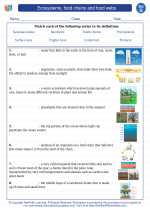Characteristics of Protozoa
- Unicellular: Protozoa are single-celled organisms.
- Eukaryotic: They have a true nucleus and membrane-bound organelles.
- Motility: Protozoa move using structures such as flagella, cilia, or pseudopodia.
- Nutrition: They obtain nutrients through phagocytosis or absorption.
- Reproduction: Protozoa can reproduce asexually (by binary fission, budding, or multiple fission) or sexually (by conjugation).
Study Guide for Protozoa
Classification of Protozoa
Protozoa are classified into four main groups based on their method of movement: amoebae, flagellates, ciliates, and sporozoans. Each group has distinct characteristics and life cycles.
Ecological Role of Protozoa
Protozoa play an essential role in various ecosystems as they are important consumers of bacteria and algae. They also serve as food for many larger organisms, contributing to the food web.
Pathogenic Protozoa
Some protozoa are parasitic and can cause diseases in humans and other animals. Understanding the life cycles and modes of transmission of pathogenic protozoa is crucial for disease prevention and treatment.
Protozoa and Human Health
Studying protozoa is important for understanding diseases such as malaria, giardiasis, and toxoplasmosis, which are caused by pathogenic protozoa. Understanding the life cycles and transmission routes of these organisms is essential for public health efforts.
Protozoan Research and Biotechnology
Protozoa are also used in research, particularly in studies related to cell biology, genetics, and evolution. They have also been utilized in biotechnology and genetic engineering processes.
[Protozoa] Related Worksheets and Study Guides:
.◂Science Worksheets and Study Guides Seventh Grade. Ecosystems, food chains and food webs

 Activity Lesson
Activity Lesson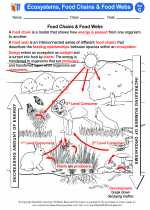
 Worksheet/Answer key
Worksheet/Answer key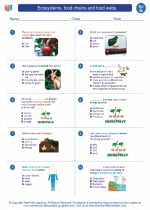
 Worksheet/Answer key
Worksheet/Answer key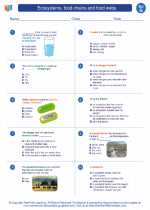
 Worksheet/Answer key
Worksheet/Answer key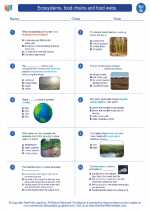
 Vocabulary/Answer key
Vocabulary/Answer key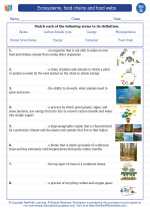
 Vocabulary/Answer key
Vocabulary/Answer key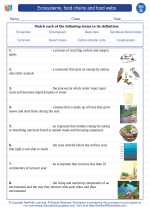
 Vocabulary/Answer key
Vocabulary/Answer key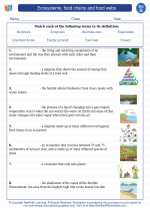
 Vocabulary/Answer key
Vocabulary/Answer key
 Vocabulary/Answer key
Vocabulary/Answer key